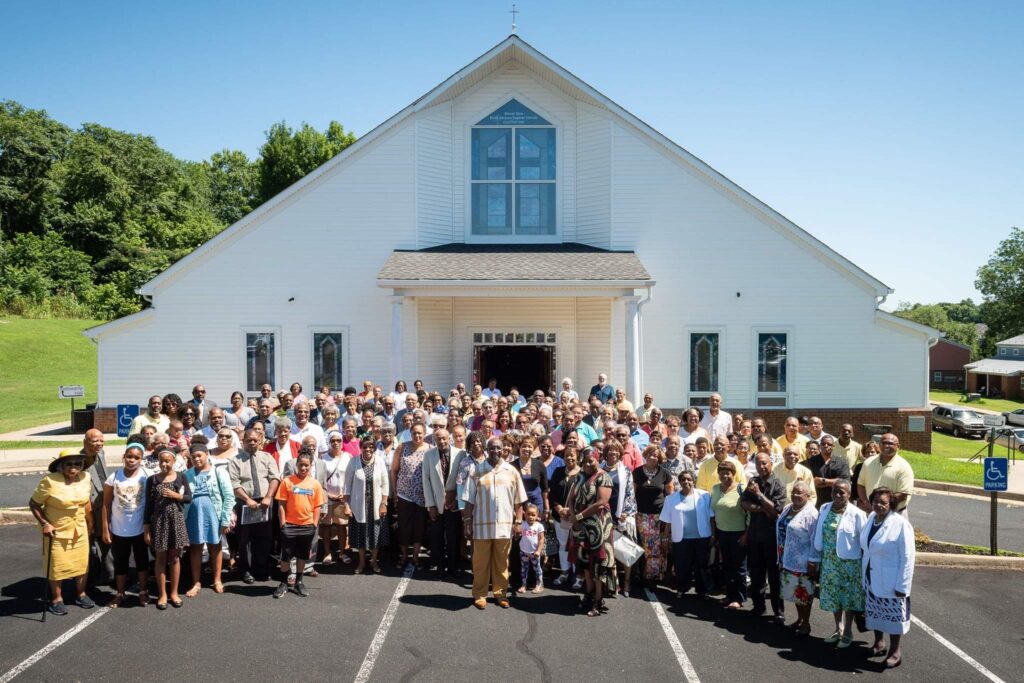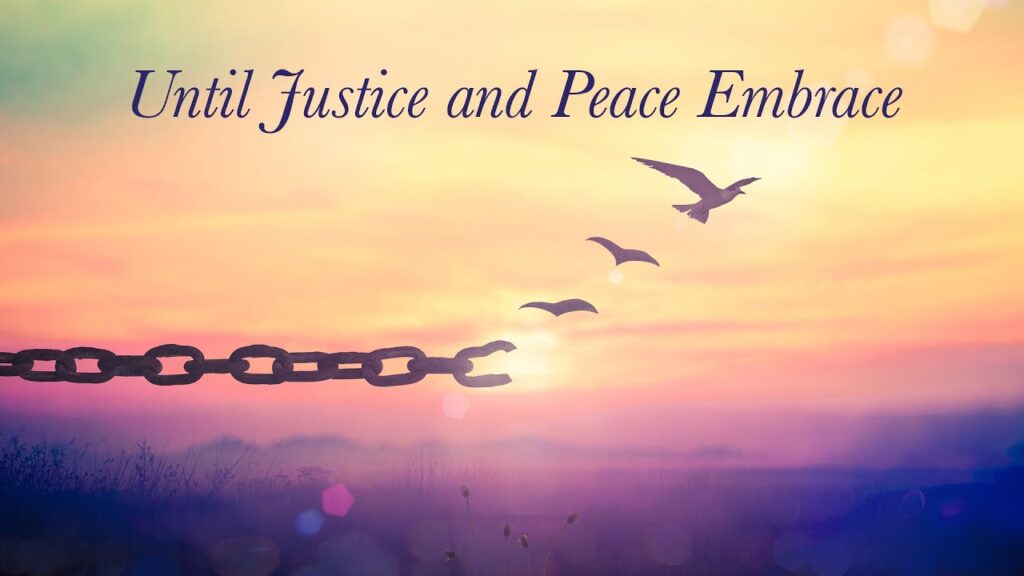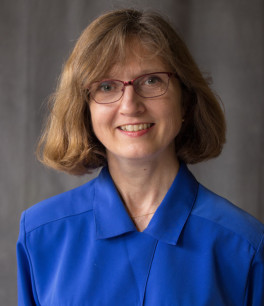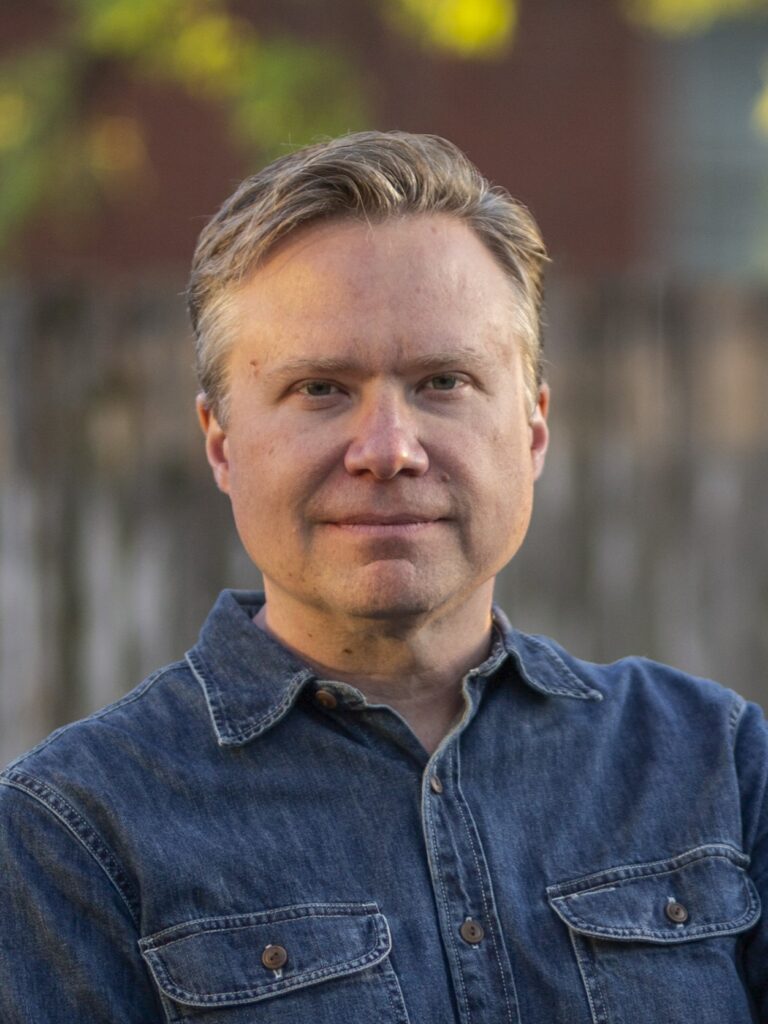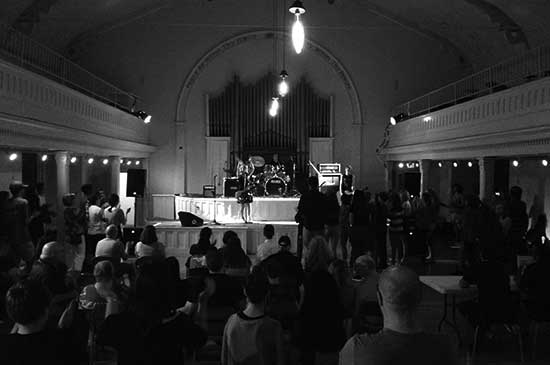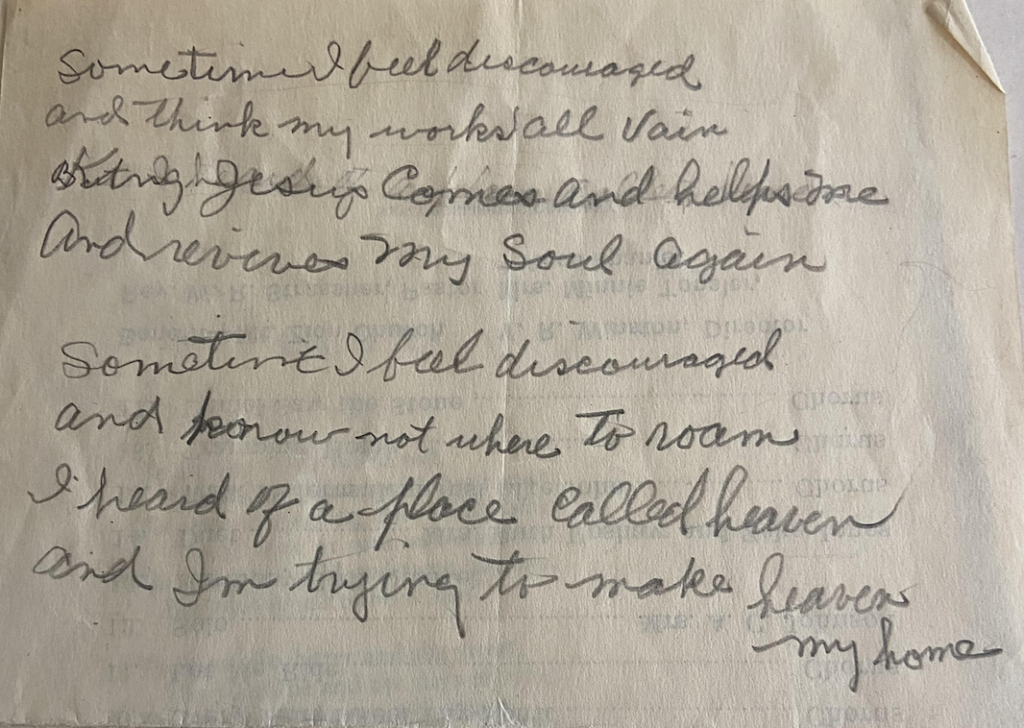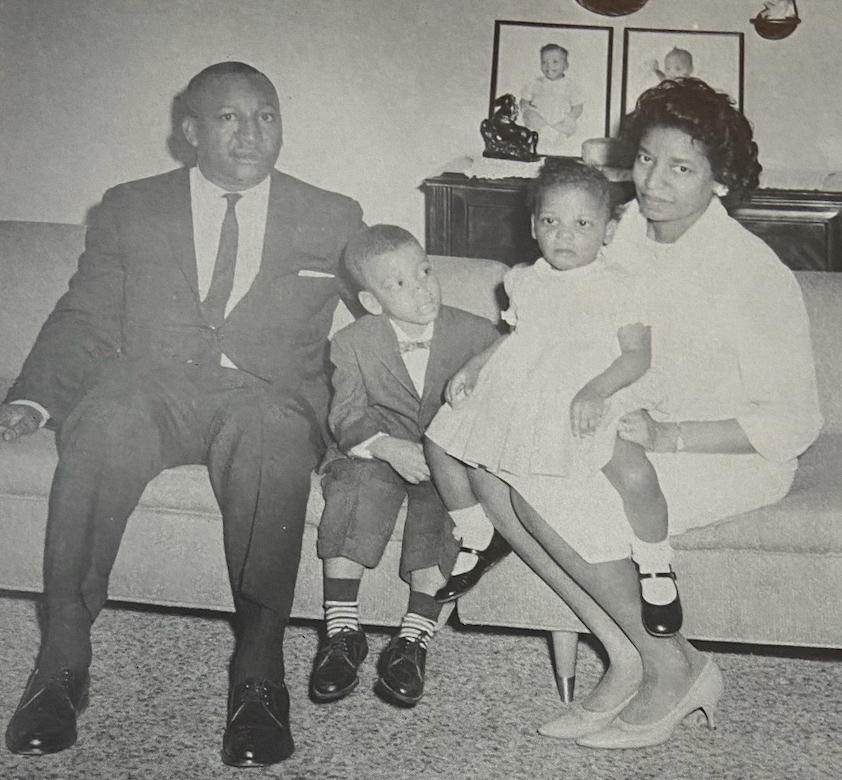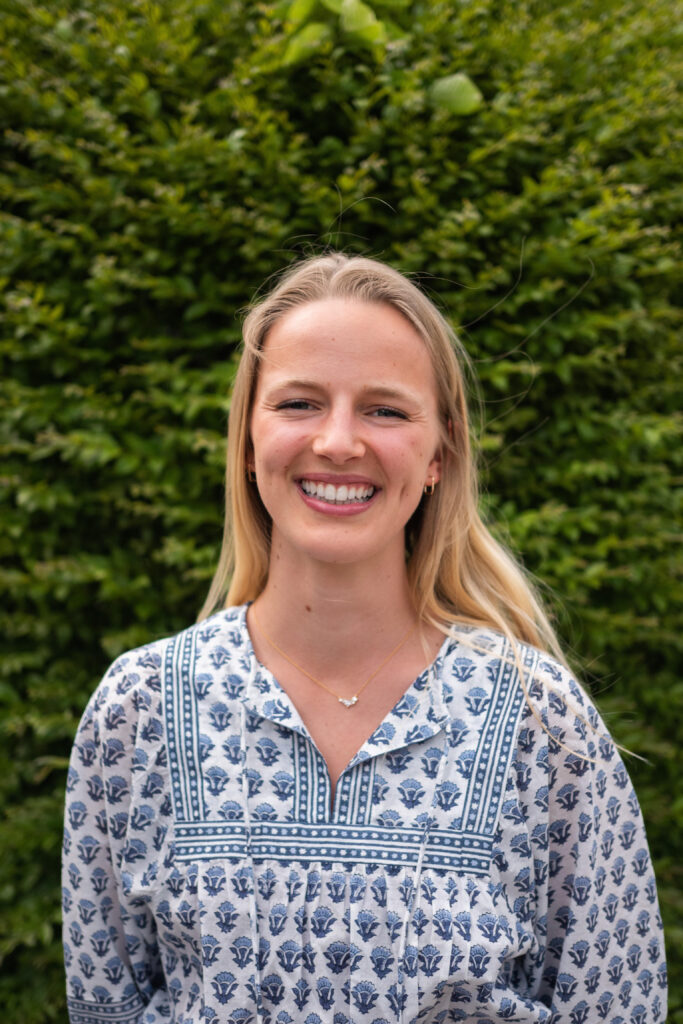by Lilly West, 2023 Undergraduate Summer Research Fellow in Lived Theology
“I’ve got another Yes, Lord (in my soul)” Mt. Zion’s choir sings. In the same way that the church’s historic 105 Ridge Street building holds echoes of a century of worship, praise reverberates in the sanctuary of the new edifice at 105 Lankford Street. Theirs is a resilient adoration.
As Reverend Dr. Edwards noted in an interview in 1986, five years into his ministry at Mt. Zion, they are a “survival church.”[1] My research this summer has been a project of storytelling, attempting to bear witness to an intersection of communities “sing[ing] better songs with [their] lives.”[2] The harmonies and disharmonies that I have encountered swell around me, holding despair, pain, and, ultimately, “triumph and calm confidence.”[3]
Early on a Tuesday morning, I walked into Mt. Zion’s church office to interview the Reverend Dr. Alvin Edwards. Characterized by most who know him as a busy man whose love for his congregation and his city orders his schedule, he graciously agreed to sit with me for a sizeable portion of his morning. Within those few hours, in the spirit of calm confidence, Reverend Edwards shared his experience of God’s faithfulness in Mt. Zion’s survival.
When he stepped into his ministry at Mt. Zion in 1981, Reverend Edwards stepped into a story and a history that preceded himself. “When I came, my focus was probably more healing than anything else,” he notes, since the church was very divided in the wake of pastoral transition. I asked about his relationship with Reverend Hamilton, who served Mt. Zion from 1960 to 1980. “To be honest,” he started, “I did not meet him until years later at the 125th Anniversary when I invited all living former pastors to come preach.”
I had assumed that Reverend Hamilton, who led the church during Charlottesville’s urban renewal initiative, which razed the Vinegar Hill neighborhood surrounding the historic church building, had shaped Reverend Edwards’ vision for the future of the church, particularly its move to the Lankford location. However, as Reverend Edwards describes it, the congregation directed his energies for the first 20 years of his ministry. Upon his arrival to Mt. Zion, he felt a tense air, “so thick you could cut it.” Church membership, as he understood it, dwindled and the average age rose. In the early days of his leadership, faithful church members invited him into the church’s recent history. “I began to hear the stories about Vinegar Hill and how they razed the community, how it dispersed all the African American people, their families, their businesses; to see how the city of Charlottesville really cheated Zion Union Baptist Church. That destroyed,” he reflects and starts again, “that decimated the Black community.”
Prior to Charlottesville’s urban renewal, many members of Mt. Zion lived in the Vinegar Hill neighborhood, easily within walking distance of the church. With the demolition of the neighborhood, residents were forced to relocate, which resulted in many moving to the 10th & Page, Ridge Street, and Belmont neighborhoods. Physical distance, as well the absence of a centralized communal space, dimmed the liveliness of the community. The land set to be “renewed” remained untouched for decades. Confusion and grief shattered the Black community. For Mt. Zion’s purposes, community engagement became a completely new project, and relocated members now had to commute for worship on Sundays. Mt. Zion’s new problem? No parking lot.
So, it would come as no surprise that when Reverend Edwards asked the congregation in 1981 their hopes for the church’s future, he noticed that the church was in desperate need of space, something he had little of in the historic building. Thus, the land for the new church building at First and Lankford was purchased within the first few years of his pastorate. He told his congregation and the broader city of Charlottesville, “I want to put our church back into the neighborhood.”[4]
Beyond moving the congregation’s physical presence “into the neighborhood,” Reverend Edwards himself entered into the realm of city leadership. For him, politics and religion cannot be divorced, especially in his role as a pastor. “There is a separation in the sense that you can’t legislate righteousness,” he offers; however, “do[ing] what’s best for [the] community,” which he understands to be his responsibility, means that he must involve himself in the workings of the city. Repeatedly, he tells me, “[m]y faith makes me look at the total person, the head, the heart and the soul.” To see someone as a “total being” should direct the Christian longing for justice and participation in spaces where there are opportunities for growth towards a more just, nurturing, safe community. To this end, Reverend Edwards had involved himself in leadership spaces such as the Monticello Area Community Action Agency, Alliance for Interfaith Ministries, Charlottesville Redevelopment Housing Authority, Charlottesville Albemarle Boys and Girls Club, Charlottesville City Council, and Back to School Bash.[5] “I want to keep working,” he looks at me and shakes his head, “I don’t want to rust out in life, I want to wear out.”
The church should be a place where the desire for the health of the “total being” abounds. Yet, as Reverend Edwards solemnly addresses, “the church as the body of Christ is polarized.” Our differences, he argues, prevent us from working together for the flourishing of our shared community. He, alongside the Charlottesville Clergy Collective, “a group of faith and allied community leaders” and his “brainchild”[6] pray for solidarity in the fight for justice and righteousness.
What can that solidarity look like in our racially separated church communities? Well, for one, the White church has to shift its understanding of solidarity. “If White churches expect Black churches to act like them, it’ll never happen,” Reverend Edwards notes, “because the Black church has been the one to have to fight and defend who we are historically, because the White church hasn’t stepped up to do it, especially the ‘body of Christ’.” Growth in this area will start with truth telling. “I think some of the white pastors and their members need to start speaking out against the wrongs that they see and stop burying their heads in the sand,” he cries out, “if we don’t turn it around we are getting ready to lose another generation of people because we haven’t ministered to them in a way that their lives have been transformed. Because we are scared. We are comfortable where we are. It ought not to be that way.”
His prayer for the body of Christ is that God would “liberate all of us from our prejudices, from our biases.” There is a richer future available to the Christian community. God invites us into an active, lived faith. This faith points to God’s inauguration of the eternal Kingdom, where God’s love in us transcends the brokenness of this earth. The more I read, the more I feel that proximity, “being in the neighborhood,” as Reverend Edwards described, is central to this future reality. Our brightest conceptions of racial reconciliation and the renewal of our church bodies are glimpses of a future not yet accessible to us.[7] Until that time, God has protected and steadied communities like Mt. Zion, communities that desire to “make kingdom kids, kingdom churches, to make God’s kingdom here on earth as in heaven.” Ultimately, I hope that God stirs us to work that grows “far more organic, meaningful, and authentic relationships than any of us can think of and project in the abstract from the alienated and still unredressed ground on which we currently stand.”[8]
This summer, I’ve been blessed to sit and reflect at the intersection of communities, Mt. Zion, the Music Resource Center, and Church of the Good Shepherd, which I have been able to research. It has been a summer of resonant worship, and songs have echoed within me and refashioned my soul. Maybe I’ve sung “Got Another Yes Lord” too many times, but I think that God continually places sustained, partnered work in front of us. My summer ends calmly confident in prayer for “another yes.”
[1] Charlottesville Daily Progress, (12/24/1986).
[2] Charles Marsh, Welcoming Justice, “The Power of True Conversion” (78)
[3] W.E.B. Dubois, The Souls of Black Folk (222)
[4] Charlottesville Daily Progress, (12/24/1986).
[5] https://ministeringtoministers.org/awards/the-rev-dr-alvin-edwards/
Reverend Edwards states that one of his dreams would be to see communities of believers work together to help every child reach grade reading level. The potential for human and community flourishing from this effort would be transformative.
[6] https://www.cvilleclergycollective.org/about.html
[7] Harvey, Jennifer. Dear White Christians. (100)
[8] Harvey, Jennifer. Dear White Christians. (100)
Learn more about the Lilly’s Undergraduate Summer Research Fellowship in Lived Theology here.
The Project on Lived Theology at the University of Virginia is a research initiative, whose mission is to study the social consequences of theological ideas for the sake of a more just and compassionate world.

